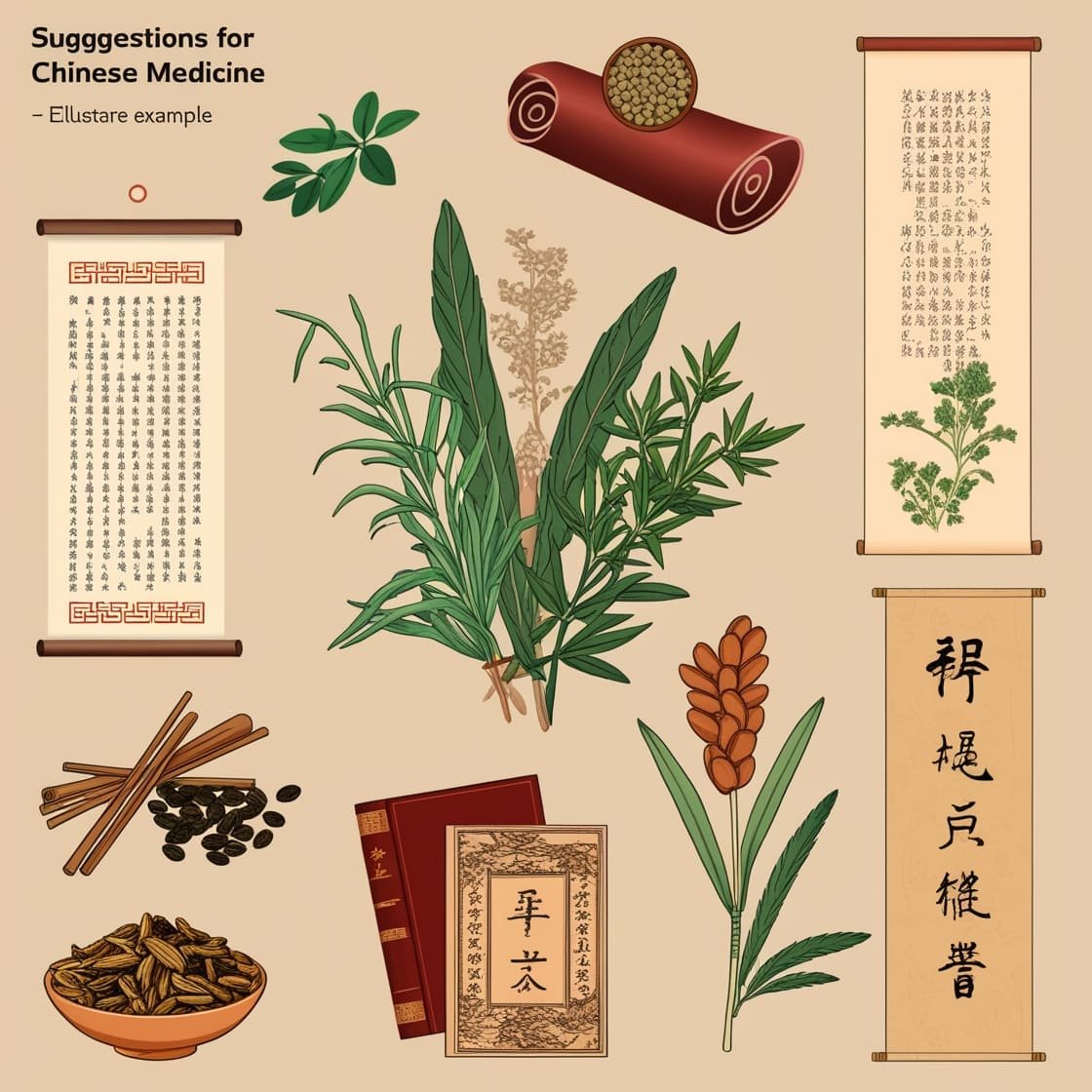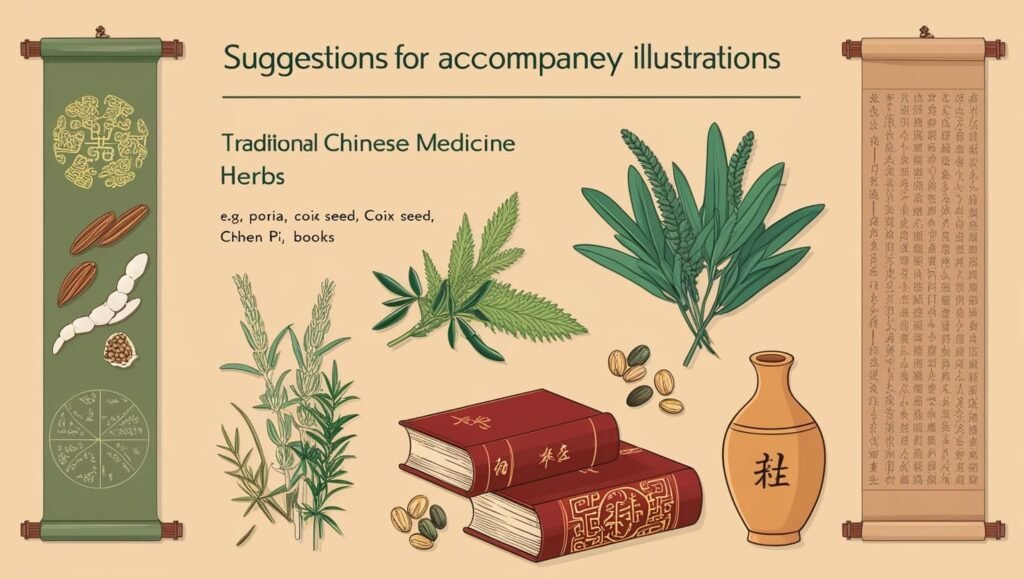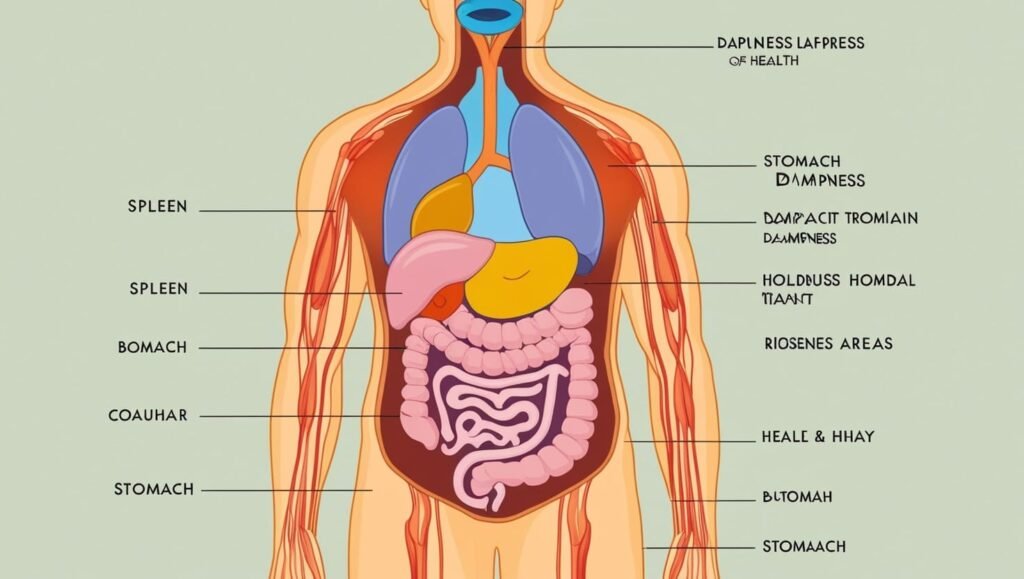Feeling tired all the time?Experiencing frequent bloating and sluggishness? These issues may be caused by dampness, a condition described in Traditional Chinese Medicine (TCM) where the body holds on to excess moisture, disrupting your health and energy flow. Thankfully, TCM has natural remedies to combat this imbalance. Learn how Chinese medicine dampness treatments can help you regain vitality and eliminate that weighed-down feeling.
一、Introduction to Chinese Medicine Dampness
In Chinese medicine, dampness is a concept used to describe an imbalance in the body caused by excess moisture, which disrupts the natural flow of energy, or qi. This condition often arises due to poor dietary habits, a sedentary lifestyle, or environmental factors like humid weather. Symptoms of Chinese medicine dampness include fatigue, bloating, heavy limbs, and a lack of mental clarity. Addressing dampness requires restoring balance through targeted treatments, such as dietary changes, herbal remedies, and lifestyle adjustments. Understanding how Chinese medicine dampness impacts the body is the first step to regaining vitality and overall well-being.
二、What is Dampness in Chinese Medicine?
In Chinese medicine, dampness refers to an excess of moisture or humidity in the body that disrupts the normal flow of qi (vital energy). This condition is often caused by external factors, such as a damp climate or an improper diet, but it can also develop internally due to weakened organ function, especially in the spleen and stomach. Chinese medicine dampness is considered a “yin” condition, often characterized by symptoms like a heavy feeling in the body, fatigue, bloating, and digestive issues. Dampness can accumulate over time, leading to more severe health issues if not addressed. Treating Chinese medicine dampness involves eliminating the excess moisture through dietary changes, herbal treatments, and lifestyle adjustments to restore balance and improve overall health.
Understanding Chinese medicine dampness is the first step to addressing this condition effectively. If you’re looking for practical strategies and remedies to get rid of dampness, check out our detailed guide on How to Get Rid of Dampness in Body.

三、Common Causes of Chinese Medicine Dampness
In Chinese medicine dampness, several factors contribute to the accumulation of excess moisture in the body. One primary cause is a weak spleen, which is responsible for transforming food and fluids into qi and blood. When the spleen’s function is compromised, it cannot properly process fluids, leading to dampness accumulation. External factors such as living in a damp climate or frequent exposure to wet environments can also contribute to Chinese medicine dampness, as excessive humidity in the surroundings overwhelms the body’s ability to expel moisture. Additionally, a poor diet, particularly one that is high in greasy, sweet, or processed foods, can impair the digestive system, leading to internal dampness. Emotional stress and lack of physical activity can further exacerbate Chinese medicine dampness, as they disrupt the flow of qi, which is crucial for maintaining balance in the body.

四、Symptoms of Dampness in the Body
In Chinese medicine dampness, the symptoms of excess dampness in the body can vary depending on its location and severity. Common signs include a feeling of heaviness, fatigue, and sluggishness. Those suffering from Chinese medicine dampness may experience bloating, particularly in the abdomen, and may find it difficult to digest certain foods. The body may also feel swollen or puffy, especially in the limbs and face, due to fluid retention. Additionally, individuals may have a greasy or sticky coating on the tongue, and their urine might appear pale or cloudy. Chinese medicine dampness often affects the digestive system, leading to symptoms like poor appetite, nausea, or a sensation of fullness. In severe cases, it can result in joint pain or skin issues, such as acne or eczema.
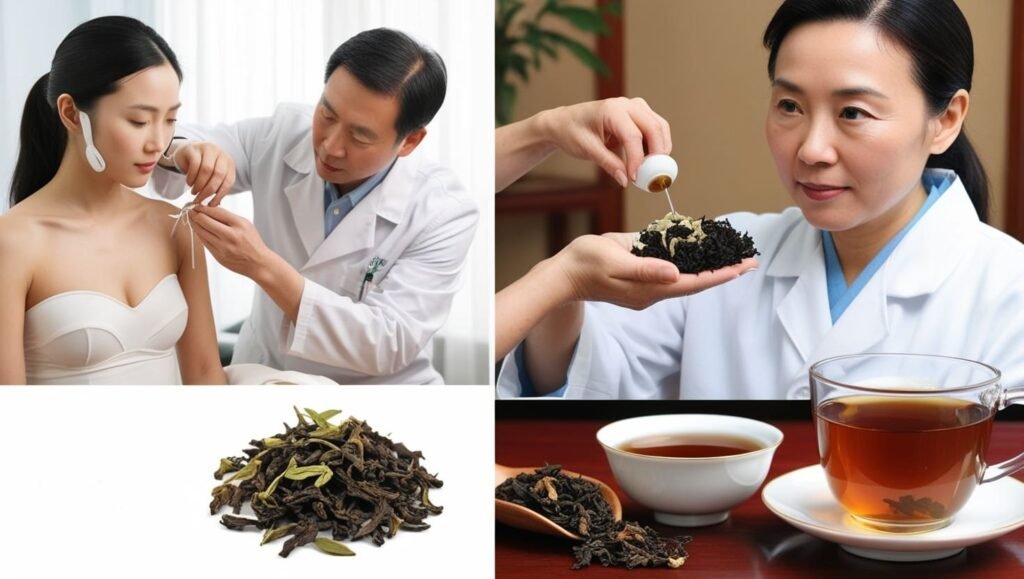
五、How Chinese Medicine Treats Dampness
In Chinese medicine dampness is treated by targeting the root cause, which is often related to the dysfunction of the spleen and digestive system. According to Chinese medicine dampness theory, the spleen is responsible for transforming food and fluids into energy, and when it is weak, dampness can accumulate in the body. To treat this, practitioners use a combination of herbal remedies, acupuncture, and dietary adjustments. Common herbs used to eliminate Chinese medicine dampness include Poria (茯苓), Atractylodes (白术), and Coix seed (薏苡仁), which help to strengthen the spleen, drain excess fluids, and clear dampness from the body. In addition, acupuncture points that focus on regulating the spleen and stomach are often targeted. Diet also plays a crucial role; foods that help to remove dampness, such as barley, ginger, and green tea, are recommended. These holistic approaches aim to restore balance in the body and prevent the recurrence of Chinese medicine dampness.
Chinese medicine provides a comprehensive approach to tackling dampness, including dietary changes, herbal remedies, and acupuncture. To explore additional tips on reducing dampness naturally, don’t miss our article on How to Get Rid of Dampness in Body.
1.Dietary Adjustments
Dietary adjustments are a fundamental approach to treating Chinese medicine dampness, as food directly influences the spleen’s ability to process fluids. According to Traditional Chinese Medicine (TCM), dampness arises when the spleen is weakened by improper diet, such as consuming excessive cold, greasy, or sugary foods. To combat Chinese medicine dampness, individuals are encouraged to eat warming and easy-to-digest foods like barley, ginger, pumpkin, and millet, which support spleen function and promote fluid balance. Avoiding raw, cold, and dairy-heavy foods can help prevent dampness accumulation. By making these mindful dietary changes, one can naturally strengthen the spleen and reduce Chinese medicine dampness in the body.
2.Herbal Remedies for Dampness
Herbal remedies are a cornerstone of treating Chinese medicine dampness as they aim to expel excess moisture and strengthen the spleen. Commonly used herbs include Poria (茯苓), Atractylodes (白术), and Coix Seed (薏苡仁), which work together to drain dampness and improve digestion. Additionally, herbs like Chinese Angelica (当归) and Chen Pi (陈皮) are often added to regulate qi and enhance fluid metabolism. Herbal formulas in Chinese medicine dampness treatments are customized based on individual symptoms, ensuring a holistic and targeted approach. Regular consumption of these herbal teas or decoctions can help clear dampness, improve energy levels, and restore overall body balance.
3.Acupuncture and Moxibustion
Acupuncture and moxibustion are effective treatments in addressing Chinese medicine dampness by stimulating the body’s energy flow and warming specific meridians. In TCM, dampness often blocks the spleen and stomach meridians, leading to sluggish energy, fatigue, and bloating. Acupuncture works by inserting fine needles into key points, such as Spleen 6 (三阴交) and Stomach 36 (足三里), to invigorate qi, improve circulation, and dispel dampness. Moxibustion, on the other hand, uses burning moxa near the body to warm and strengthen the spleen, helping it metabolize excess moisture. Combined, acupuncture and moxibustion effectively alleviate Chinese medicine dampness, reduce symptoms like fatigue and heaviness, and restore vitality.
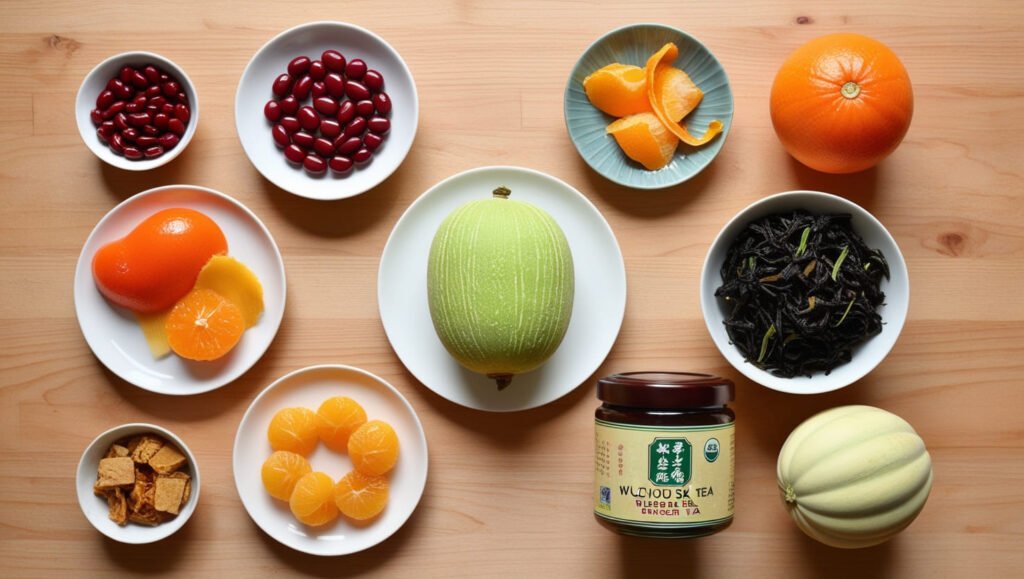
六、Best Foods to Combat Chinese Medicine Dampness
In treating Chinese medicine dampness, the right food choices play a crucial role in reducing excess moisture and restoring balance to the body. Foods that strengthen the spleen and promote diuresis are highly recommended in Traditional Chinese Medicine (TCM). These include barley, coix seed (薏苡仁), lentils, and pumpkin, which help to drain dampness and improve digestion. Additionally, warming spices such as ginger, cinnamon, and turmeric are excellent for invigorating the spleen and dispelling cold dampness. Incorporating nutrient-rich vegetables like Chinese yam (山药) and winter melon (冬瓜) can also effectively reduce Chinese medicine dampness while providing essential vitamins. A carefully planned diet with these foods can help combat fatigue, bloating, and heaviness, restoring vitality and overall well-being.
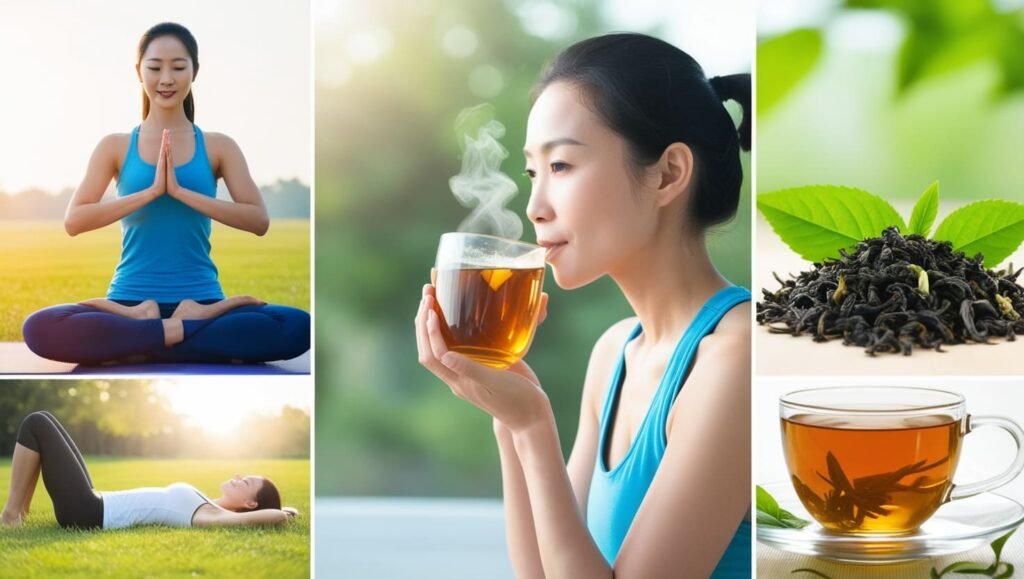
七、Lifestyle Tips to Prevent Dampness
Preventing Chinese medicine dampness requires consistent lifestyle habits that align with the principles of Traditional Chinese Medicine (TCM). Maintaining a balanced daily routine, including regular exercise such as walking, Tai Chi, or yoga, helps to stimulate the flow of qi and blood, reducing the accumulation of dampness. Keeping the body warm is equally important; avoid consuming cold or raw foods and opt for warm, nourishing meals instead. Hydration is vital, but it’s essential to drink the right beverages. For example, Wuzhou Liubao Tea (梧州六堡茶), known for its ability to dispel dampness and support digestion, is an excellent addition to your daily routine. Additionally, managing stress through meditation and ensuring quality sleep will strengthen the spleen, the organ most affected by Chinese medicine dampness. By making these small yet effective changes, you can maintain a healthier, damp-free body.

八、Conclusion: Regain Energy and Vitality by Addressing Dampness
Incorporating the principles of Chinese medicine dampness treatment into your daily life can help you restore energy, vitality, and overall well-being. By understanding the causes and symptoms of dampness, making mindful dietary adjustments, using herbal remedies like Wuzhou Liubao Tea (梧州六堡茶), and adopting lifestyle habits that support a strong spleen and stomach, you can effectively eliminate dampness from your body. Traditional Chinese Medicine emphasizes balance and harmony, and addressing dampness is key to achieving both. Regaining your energy and improving your health is possible when you align your lifestyle with these time-tested practices.
